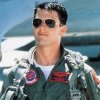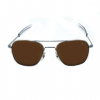Hello all,
I am a senior in HS and plan to study mechanical engineering next year, having applied for NROTC, USNA, and a handful of other top engineering schools. Upon visiting such civilian schools, I realized the incredible educational opportunities for engineering (design teams, internships, laboratory research, etc...).
I have a very strong desire to serve my country after college in the Navy, this has been my dream for years. I also, however, have a very strong desire to pursue (and spend a lot of time on) these engineering opportunities in college and beyond. I know that USNA is a top-ranked STEM school and has many opportunities such as this, but time is limited due to academic, athletic and military obligations.
Would anyone care to provide insight on such engineering opportunities/experience at USNA or in the Fleet?
I understand that the character and leadership experience built as an officer is incredibly valuable to success in any discipline. Does serving the mandatory commitment as an officer hinder one's opportunities in industry once they transition into the civilian world, since one has never experienced the business world (while others in their graduating class have had 4-8 yrs of industry experience already)?
Thank you so much!
I am a senior in HS and plan to study mechanical engineering next year, having applied for NROTC, USNA, and a handful of other top engineering schools. Upon visiting such civilian schools, I realized the incredible educational opportunities for engineering (design teams, internships, laboratory research, etc...).
I have a very strong desire to serve my country after college in the Navy, this has been my dream for years. I also, however, have a very strong desire to pursue (and spend a lot of time on) these engineering opportunities in college and beyond. I know that USNA is a top-ranked STEM school and has many opportunities such as this, but time is limited due to academic, athletic and military obligations.
Would anyone care to provide insight on such engineering opportunities/experience at USNA or in the Fleet?
I understand that the character and leadership experience built as an officer is incredibly valuable to success in any discipline. Does serving the mandatory commitment as an officer hinder one's opportunities in industry once they transition into the civilian world, since one has never experienced the business world (while others in their graduating class have had 4-8 yrs of industry experience already)?
Thank you so much!


